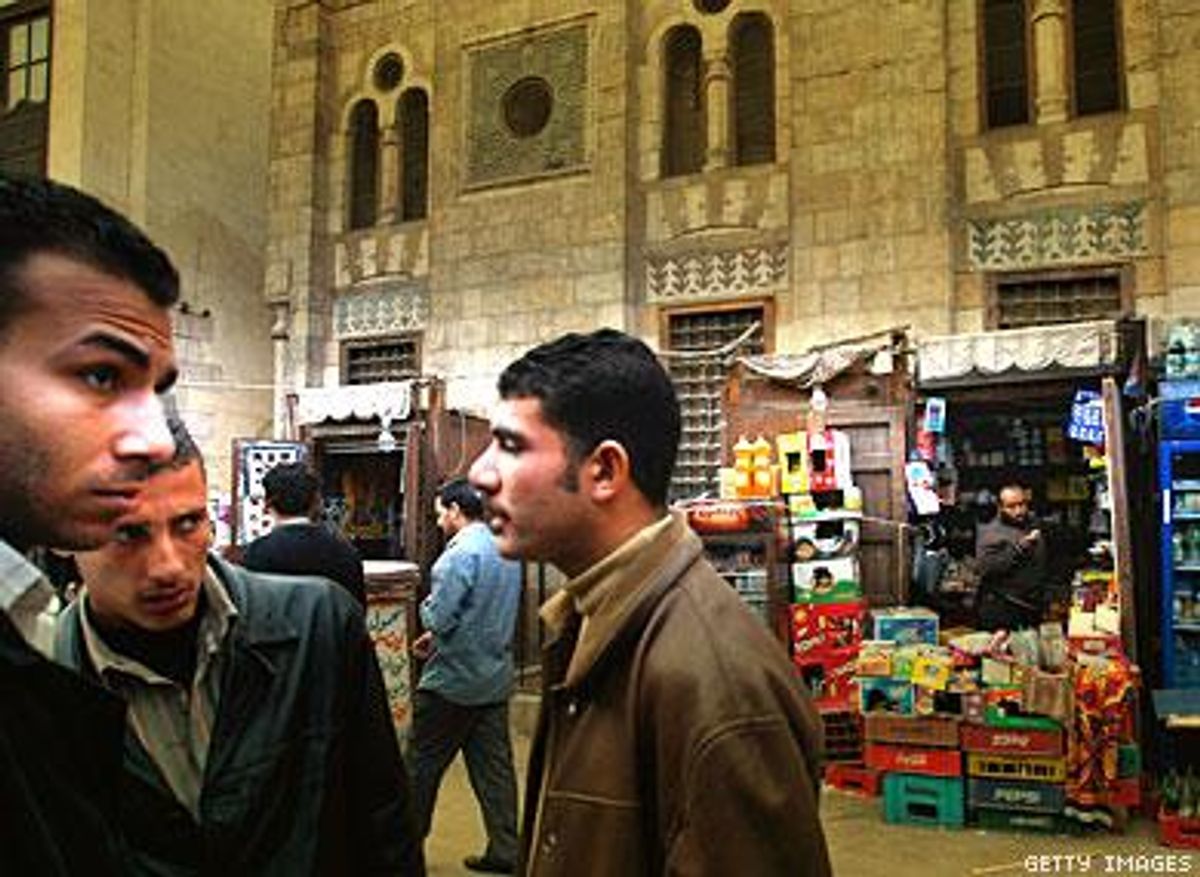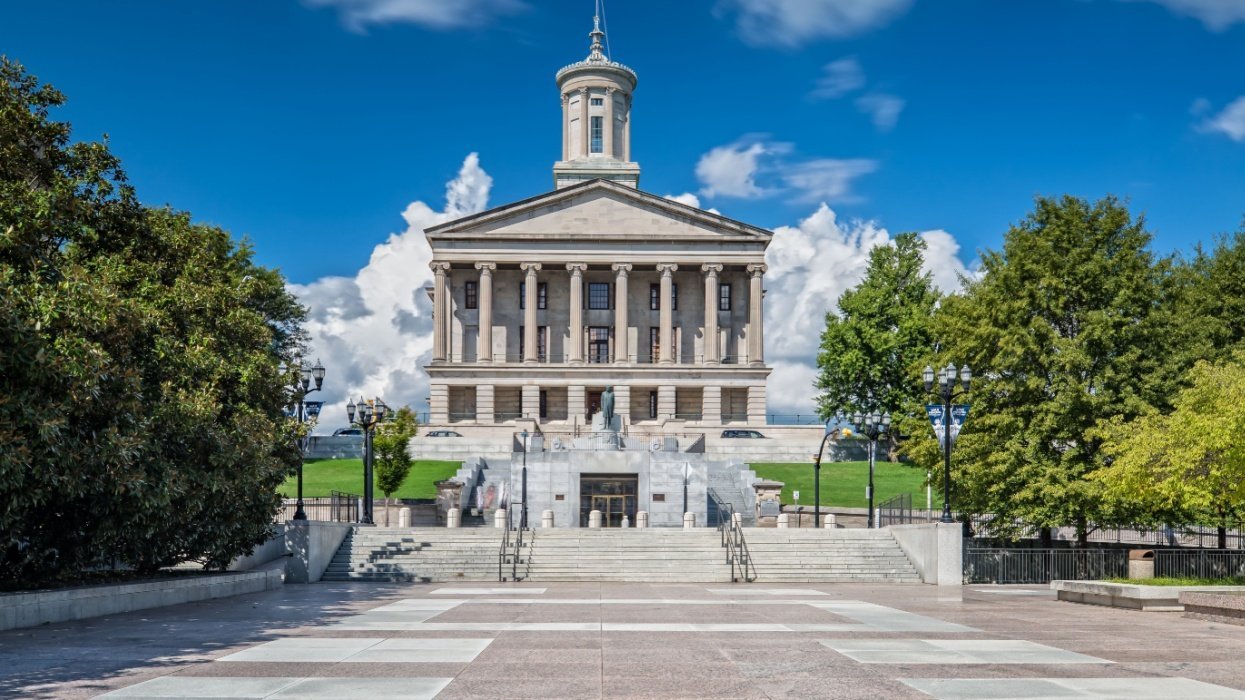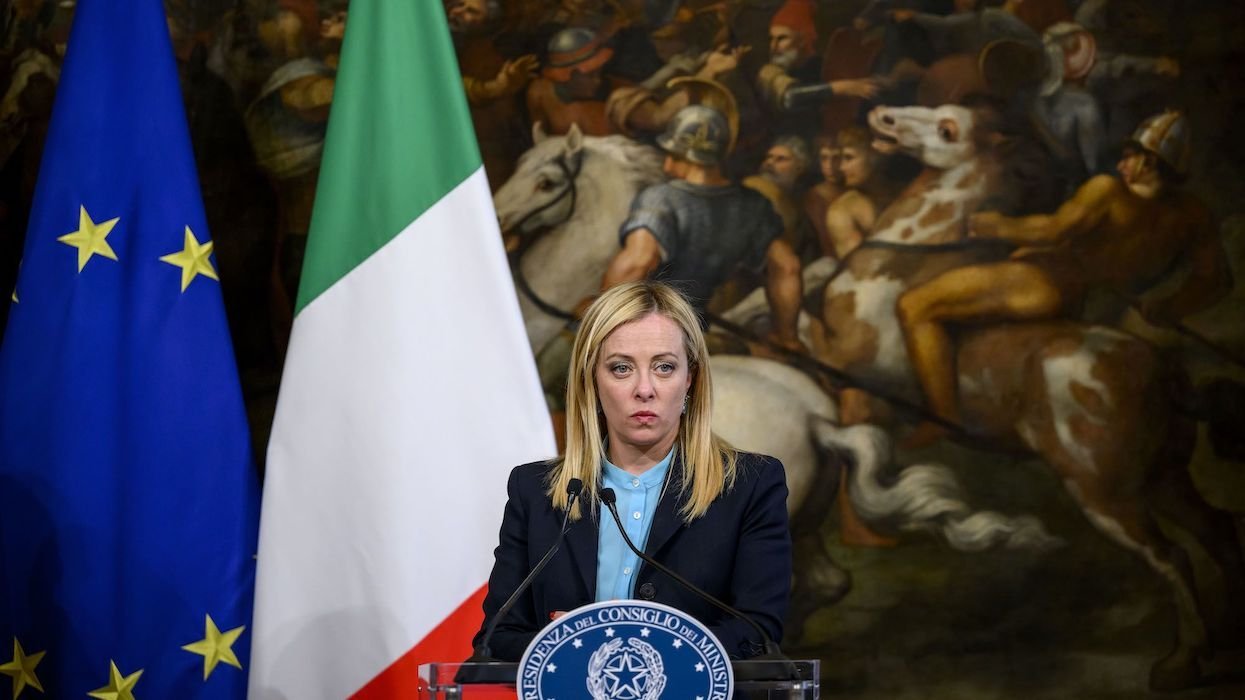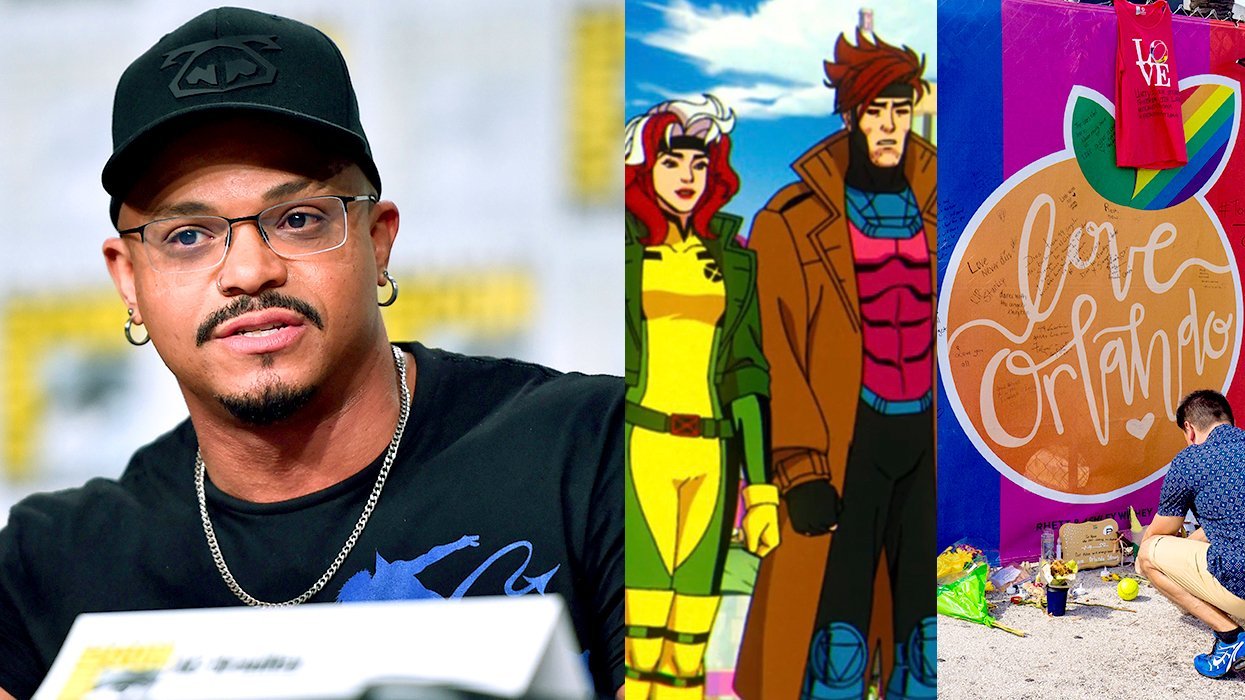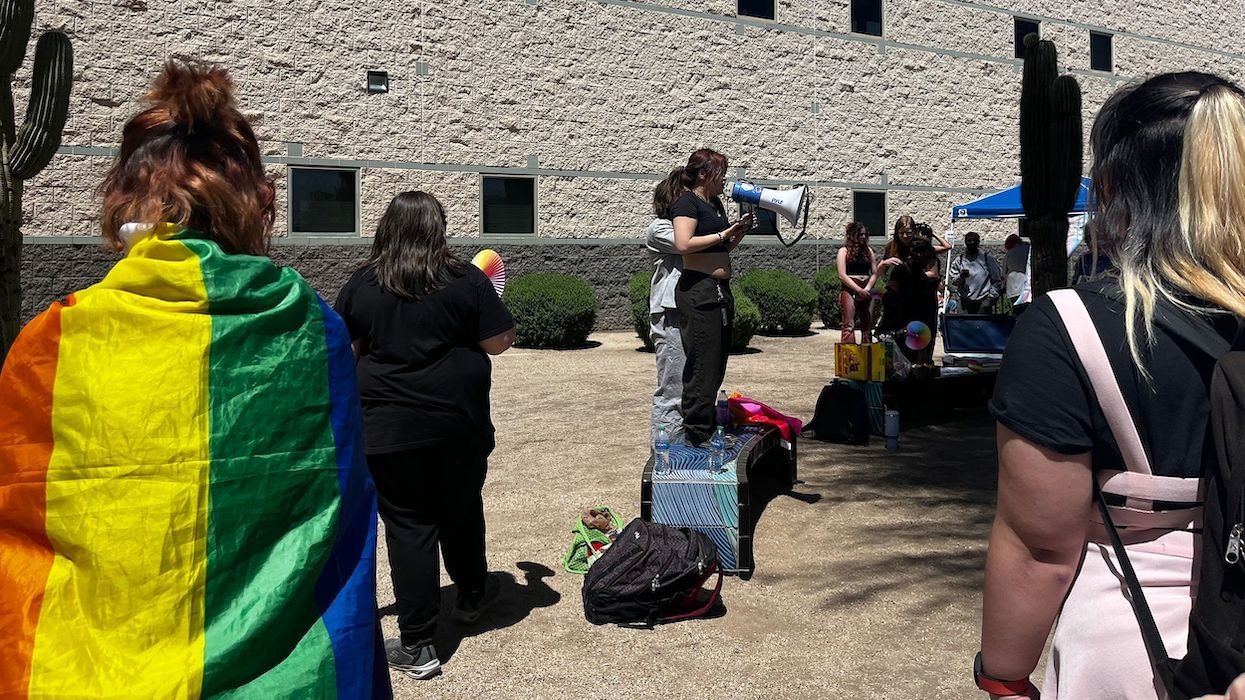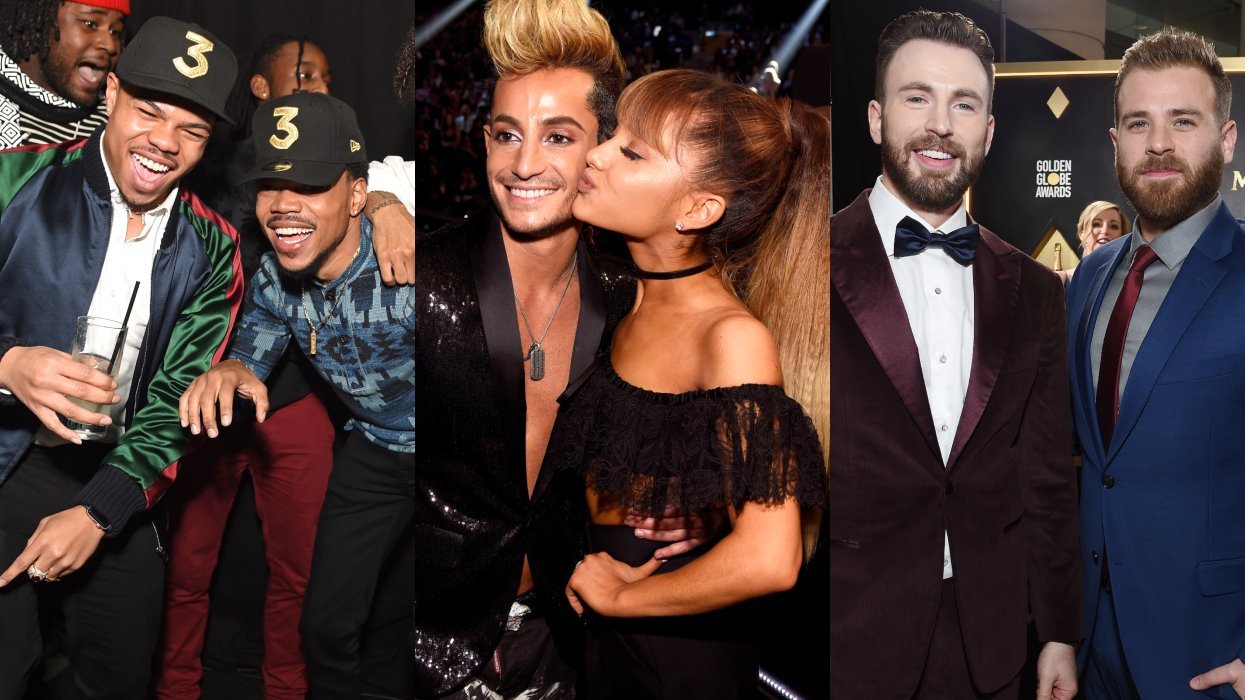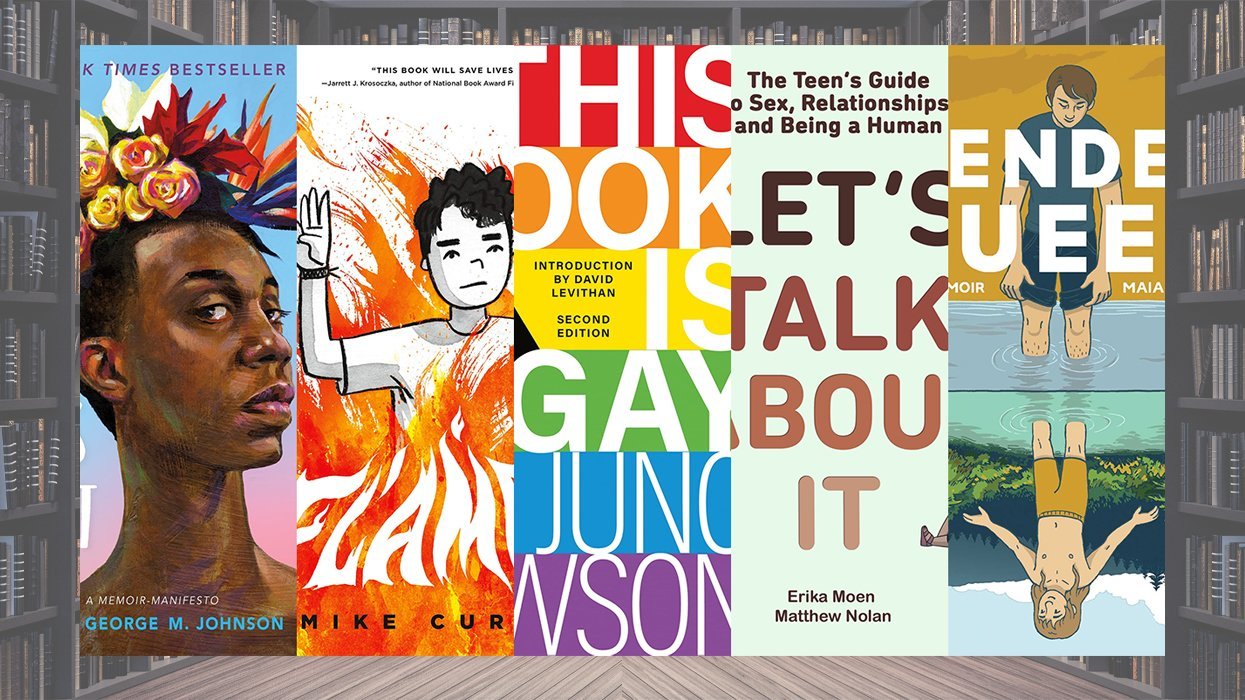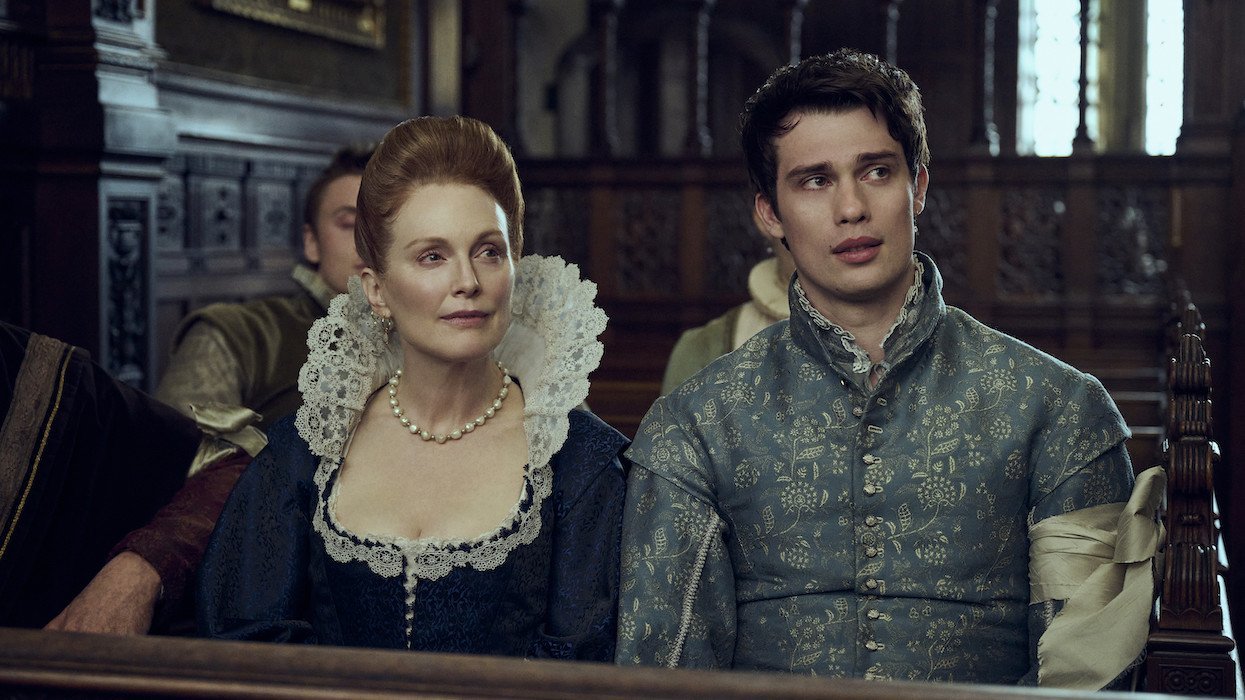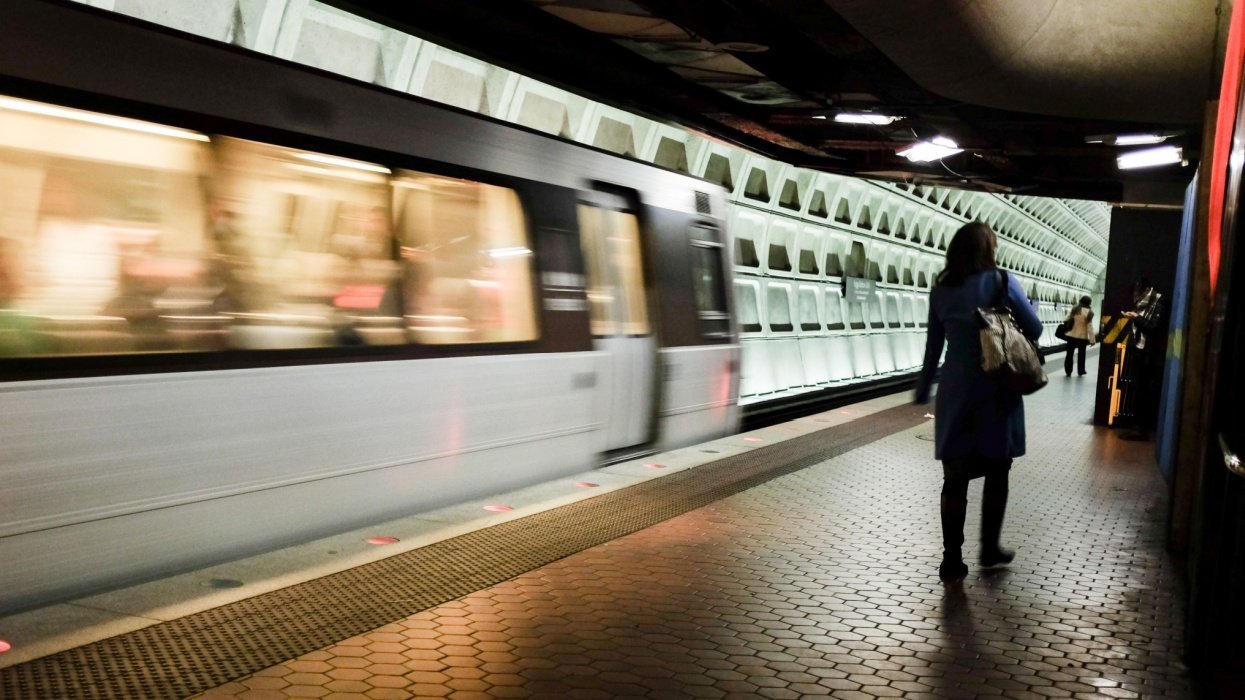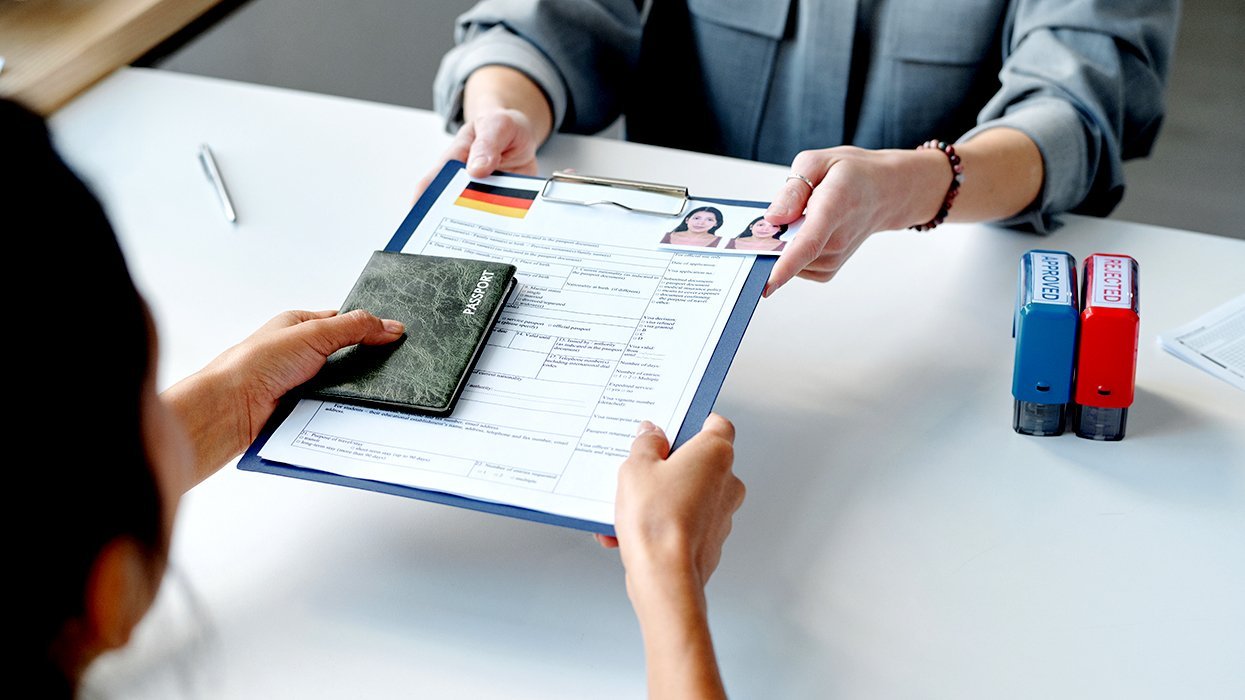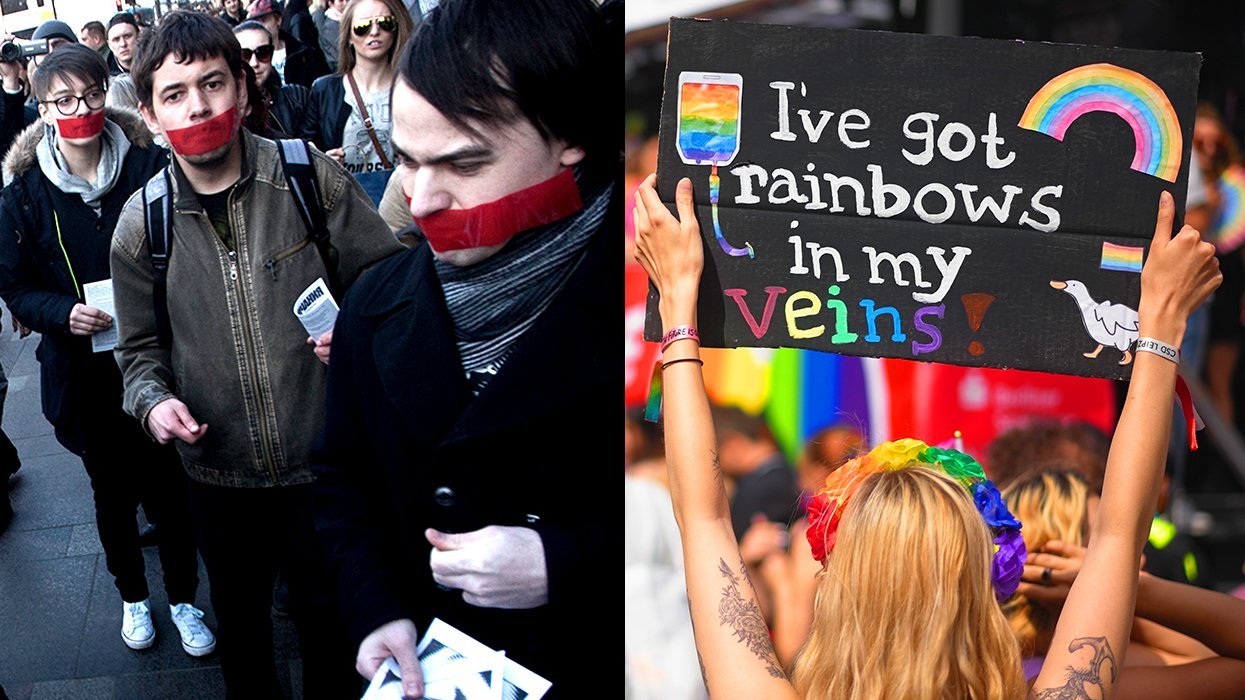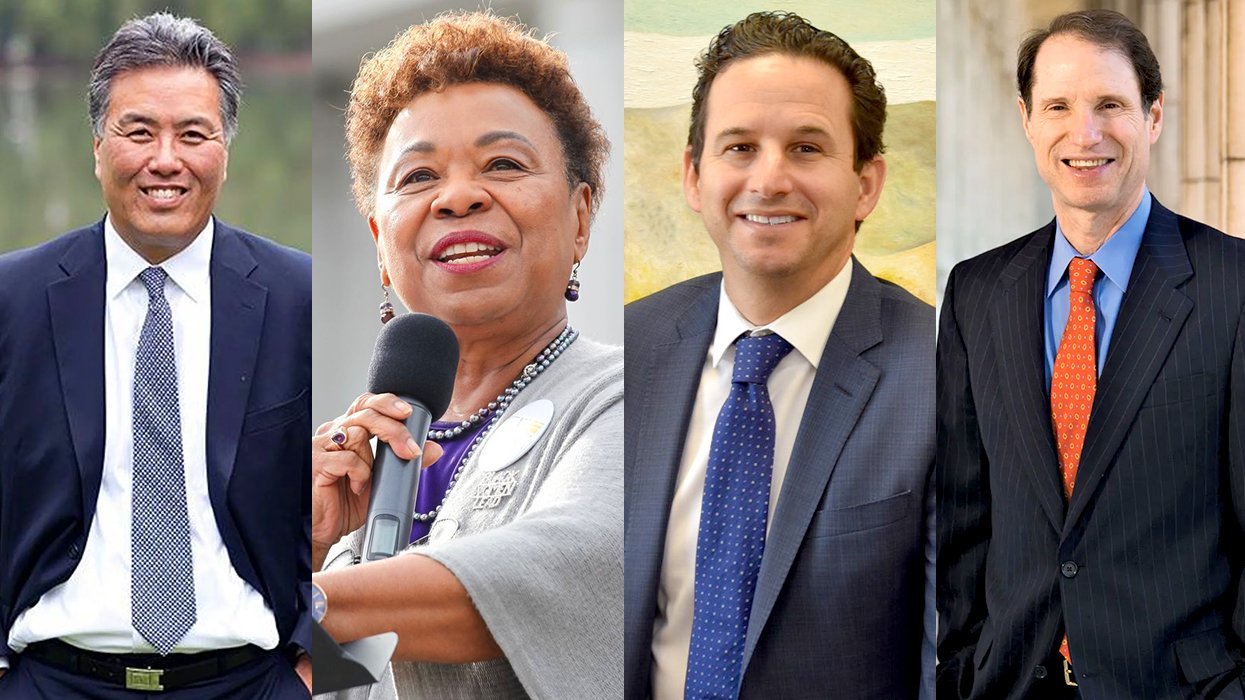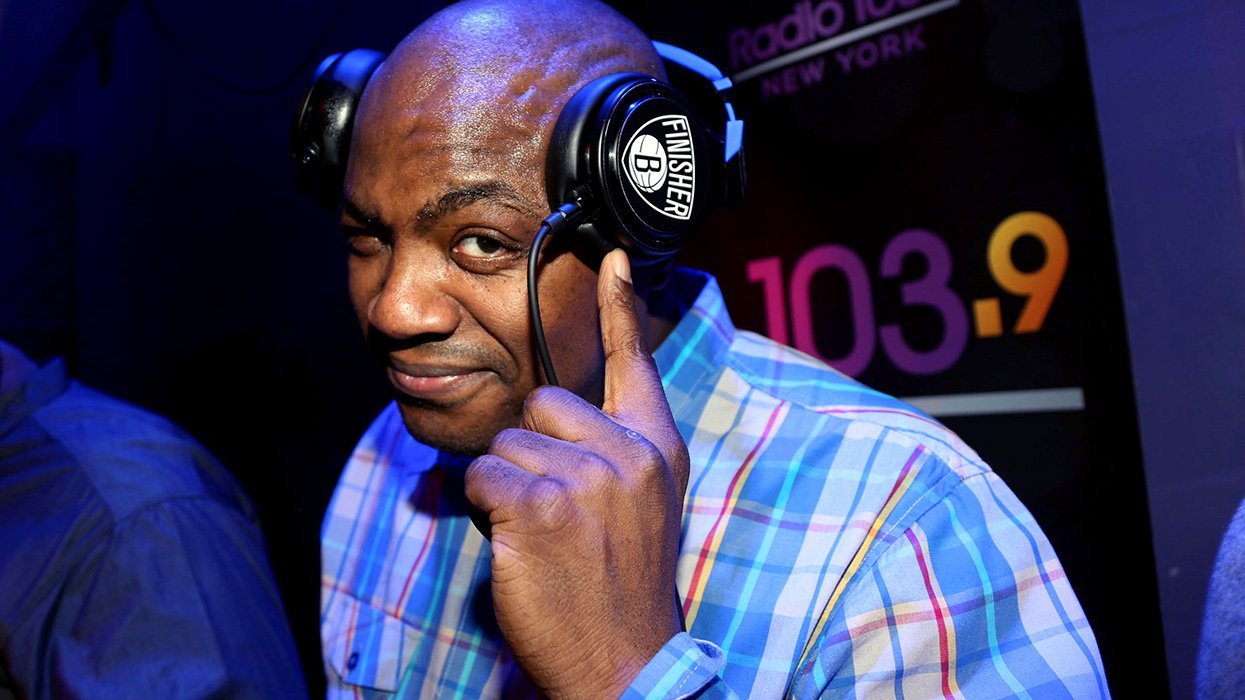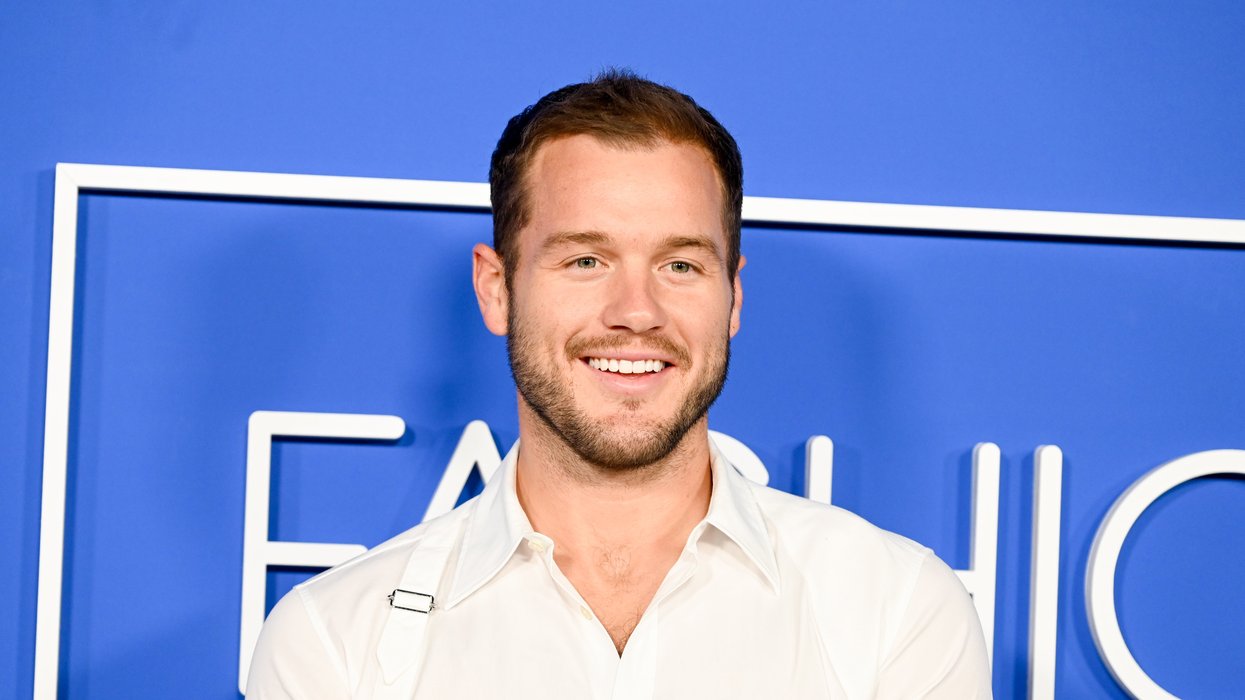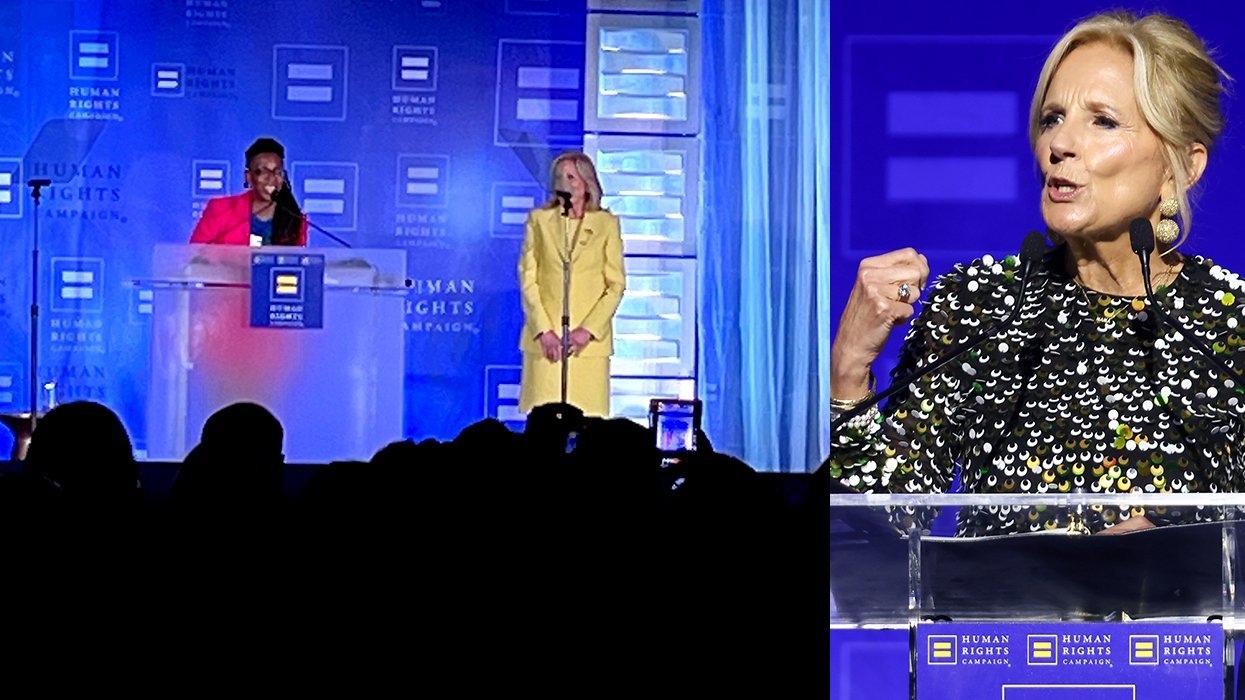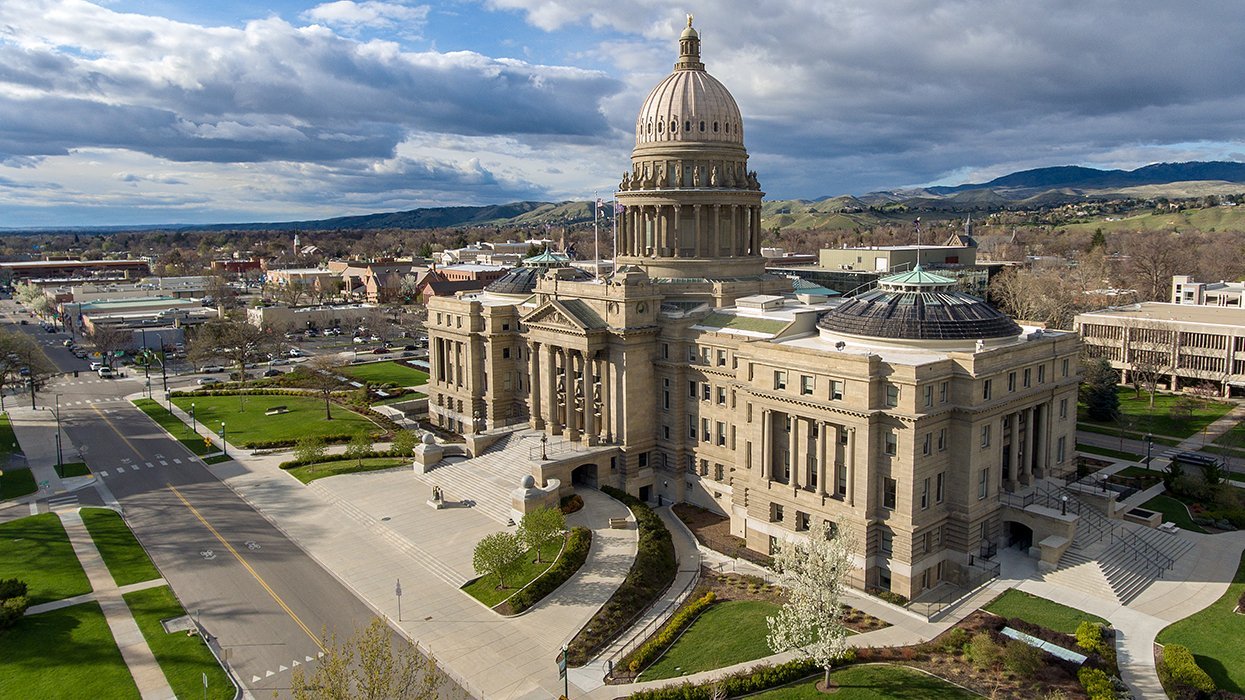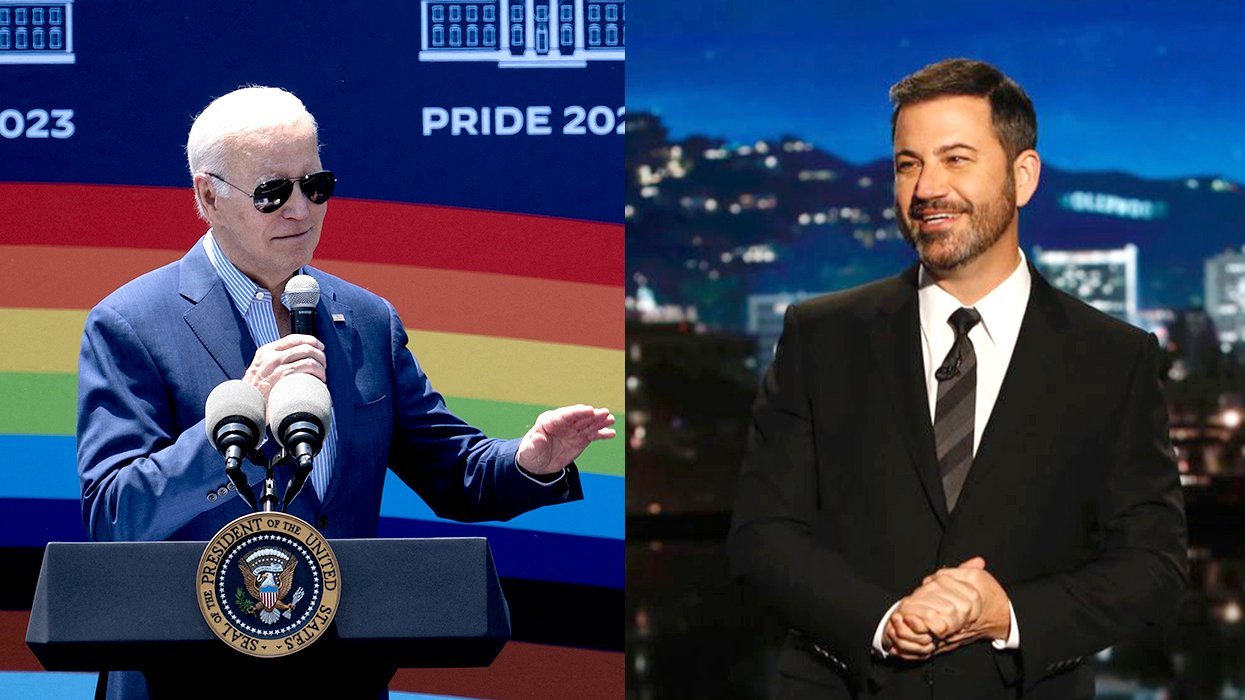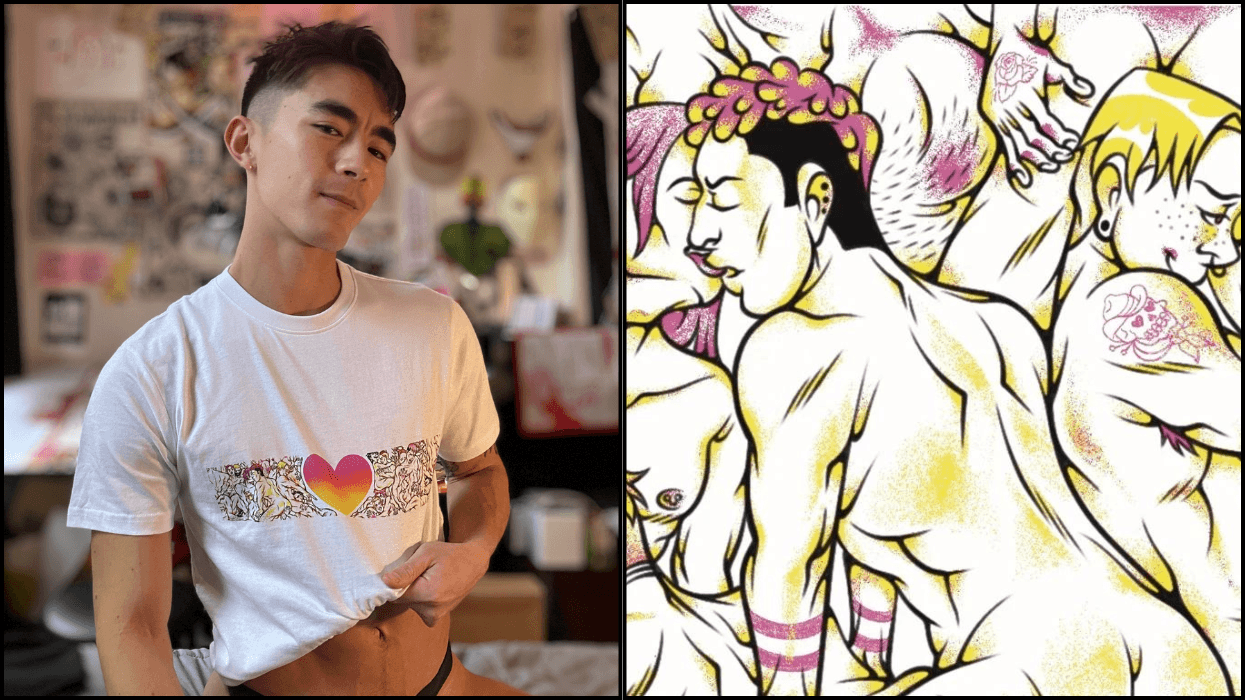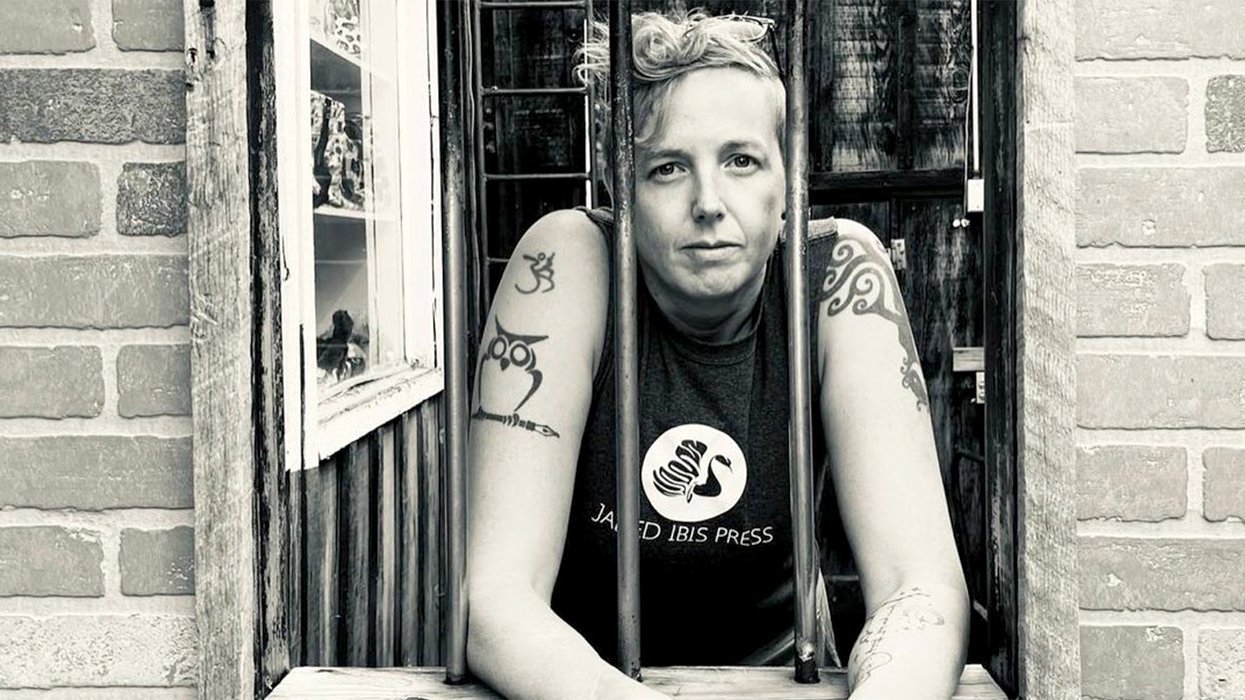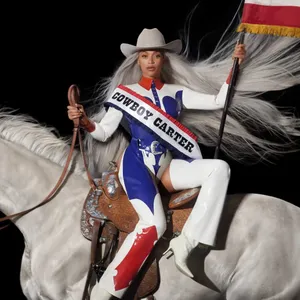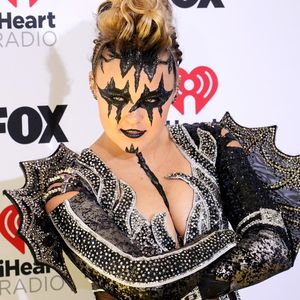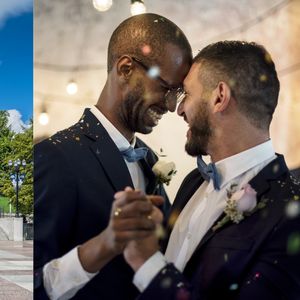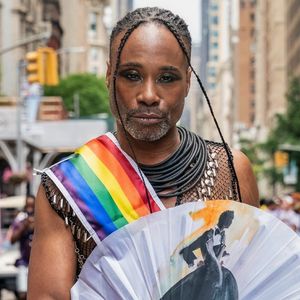I was born in Egypt to a Muslim father and a Christian mother. It's safe to say that this wasn't exactly the ideal place for a burgeoning gay man to grow up. After all, Egypt is notorious for physically torturing homosexuals, using police entrapment to out gay men and to subsequently imprison them. Luckily enough, my parents' respectable professions allowed them to emigrate to the West, where personal liberties are more or less protected.
But it didn't matter where I existed geographically -- religious piety consistently seemed to pervade my life. In the U.S. and later in Britain, my family encouraged me to adhere to moral codes, which suggested that I would spend the rest of my days as a semicloseted homosexual.
This was exceptionally difficult, especially considering my sexual awareness began when I was 12 years old. As I grew older I tried to rebel, but confronting the issue openly was a risk I never had the guts to face. To deal with the pressure, I tried to find solace wherever I could. This longing led to an intimate relationship with a man who was more than 20 years older than me, when I was only a teenager. I wanted him to shield me from the pain that was to come imminently. It never dawned on me then that I was being exploited because I was so young and vulnerable.
By my sophomore year in college, I was living in the U.K. with my mother and three brothers. Following many years spent traveling, living life in flux, we had developed into a relatively tight-knit family unit. With this stability came a new comfort. I began to frequent the gay bars in my city and I joined an LGBT society, helping others come to terms with their sexuality, even though this was something I could never seem to achieve myself. Still, my relationships with men were always promiscuous and fleeting in nature. I simply couldn't have anyone find out that I was a fraud.
One late night I came home to find that my sheltered bubble had been burst. I entered my bedroom, where my mother and one of my brothers were sitting on my bed, which was strewn with gay memorabilia. Films, magazines, and books of a homoerotic nature were presented to me. They had gone as far as to root through my letters, and even some of my e-mails were printed out to prove my gay orientation. For the first time my secret life was there for them to see. With this realization I plummeted to a dark and desperate place.
My mother informed me that I would be seeking reparative therapy as soon as possible. This unnerving threat was mirrored by physical abuse from one of my brothers. The next day, he cornered me up against a wall and held a butcher's knife to my neck, warning me that the worst was yet to come.
Despite all of this, I couldn't muster the courage to leave. I would sit down at the dinner table and let my brother yell "pedophile" at me while I ate. For some reason I thought this would make me stronger.
With time I managed to weave a more intricate web of lies. My female friends would come round and I would pretend that they were my girlfriends. I upped my workout sessions at the gym, attempting to bulk up my body. I even developed a deep growl whenever I spoke to the family in Arabic. Now I am back to the placid state that I was in before. But deep inside of me a fire still rages.
What I endured does not even begin to compare to the suffering that LGBT Muslims must endure on a daily basis. One of the most widely referenced examples is that of the 2001 Queen Boat raid, which found 52 men arrested for "deriding religion" at a gay hotspot in Cairo. Over 20 of those men faced prison sentences, spanning three to five years. The rest of the men returned home to find their faces splashed across national newspapers, with some of the news stories suggesting that the detainees were members of an organized "Satanist" group.
After the event, Egyptian filmmaker Maher Sabry spent three years independently financing and producing a film about the raids, titled All My Life ( Toul Omri ). The film was never released in Egypt, and Sabry informed me that a former religious cleric called for the "immediate burning" of the movie ... without ever seeing it.
At the same time, Zein el Abedeen, the director of Egypt's anti-AIDS program, stated that "the film was a painful blow to all of our efforts to combat HIV." Sabry has also had to deal with an in-box overflowing with hate mail (from Muslims and Christians).
"I got e-mails warning me of the wrath of God ... some would recite verses from the Koran describing the punishment of Sodom and Gomorrah, promising me a similar fate ... while others would just send messages calling me vulgar names and scolding my parents."
This religious tension is just as pertinent (if not more so) in non-Arab nations such as Iran, whose very own president, Mahmoud Ahmadinejad, noted in 2007 that there were "no homosexuals in [the country]." Soon after the remark, Be Like Others, a film by Iranian-American filmmaker Tanaz Eshaghian, revealed that the Iranian government had been encouraging gay men to undergo sex-change operations as an alternative to the death sentence.
Most recently, homophobic strife has been on the rise in Iraq. In late April the BBC reported that there is a vigilant campaign against gay men in the country, which activists say has already claimed more than 60 lives this year. Apparently, the militant movement has also started putting up posters with lists, revealing homosexuals by name and threatening to abuse, molest, and kill them. In spite of pleas from the likes Amnesty International, leaders in the country have denied any association with these acts.
In December of last year a joint U.N. statement, designed to protect the vulnerable LGBT community, was signed by over 60 nations, but it has done little to protect the gays in the Arab world. However, said Brian Whitaker, an editor of the London Guardia n and author of the book Unspeakable Love: Gay and Lesbian Life in the Middle East, "It is becoming more and more difficult to keep a lid on the discussion of homosexuality in the Middle East." He also noted that Western debates surrounding the likes of Brokeback Mountain and even something as seemingly banal as George Michael's bathroom arrest have helped raise "gay awareness" in the region -- all of which could potentially alter the future of these defenseless citizens.
Still, I am left questioning my own place in all of this. If I am unable to find the nerve to stand up for my beliefs (while living in a liberal democracy), how will the helpless LGBT community in the Middle East ever find the strength to fight for change? Regrettably, every time I come to raise my voice, something stops me. For instance, a Gallup-Coexist survey released May 7 found that there was zero tolerance for homosexuality among U.K. Muslims. This disheartening news, coupled with the memories of fearing physical harm by my own family, have once again forced me to reconsider my decision.
I guess nothing in life can prepare you for that moment when your family chooses to reject you. When the people who taught you about compassion, unconditional care, and friendship suddenly decide that you are not worth being loved, the world tends to seem like a very lonely place. But I'm still hopeful. Together, we can build new families and communities -- this time, with people who will stand by us. It won't be easy, but that shouldn't stop us from trying. After all, we owe it to each other -- we deserve it.
